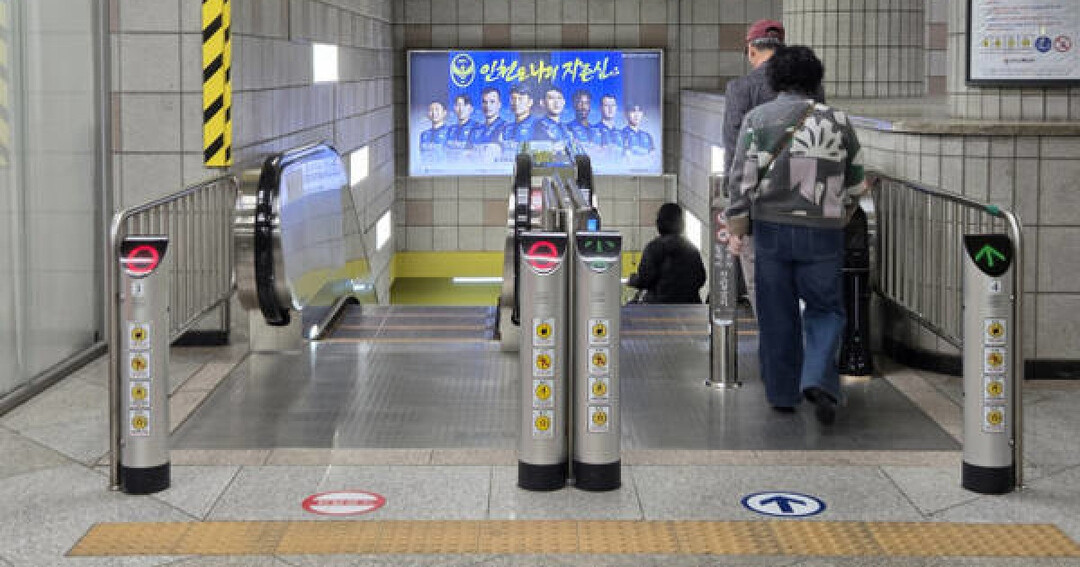
Incheon, South Korea – The Incheon Transit Corporation (ITC) is solidifying its position as a national leader in barrier-free accessibility, implementing a comprehensive suite of initiatives aimed at dismantling the physical and systemic obstacles faced by transportation vulnerable individuals. As South Korea prepares to observe the Day of Persons with Disabilities on April 20th, ITC’s proactive and multifaceted approach underscores a growing commitment to inclusivity and universal design within its public transportation network.
The ITC oversees the operation of Incheon Subway Lines 1 and 2, as well as the section of Seoul Subway Line 7 extending through Incheon. Recognizing the diverse needs of its ridership, which includes individuals with disabilities, senior citizens, pregnant women, and parents with young children, the corporation has embarked on an ambitious journey to create a truly accessible and equitable transit experience for all.
Liberation from the 'Staircase Hell': Extensive Elevator and Escalator Installations
A cornerstone of ITC’s barrier-free strategy is the significant investment in vertical transportation infrastructure. To date, the corporation has installed an impressive 870 elevators, escalators, and wheelchair lifts across its 68 stations on the aforementioned three lines. This includes 254 elevators strategically placed to ensure step-free access from street level to platforms, 614 escalators to ease movement between levels, and 2 wheelchair lifts in specific locations. This extensive deployment has effectively addressed the long-standing challenge often referred to as the “staircase hell” by individuals with mobility impairments, ensuring that a continuous accessible path of travel (one-route accessibility) is available at every station.
Looking ahead, ITC is committed to further enhancing accessibility by adding more vertical transportation options. Plans are in place to install additional elevators at 14 key stations on Incheon Line 1, including the busy Incheon City Hall Station. By 2027, one new elevator will be operational at Incheon City Hall, and eight new escalators will be installed at three other stations, including Dongmak Station. Furthermore, the existing inclined wheelchair lift at Dongmak Station, which can present challenges for some users, will be upgraded to a more user-friendly vertical wheelchair lift.
Recognizing that elevator installation may not always be feasible due to structural constraints or space limitations, ITC is also focusing on installing new escalators at 21 stations where elevators are not possible or where external exits lack escalator access. This balanced approach ensures that a variety of mobility aids are available to cater to different needs and station layouts. The ongoing replacement of outdated vertical transportation units, some of which have been in service since the late 1990s, with modern, energy-efficient models further demonstrates ITC’s commitment to long-term accessibility and reliability.
Creating Comfortable and Safe Station Environments: Consideration Shelters and Enhanced Safety Features
Beyond physical accessibility, ITC is also prioritizing the comfort and safety of its transportation vulnerable passengers. The introduction of “consideration shelters” at above-ground stations addresses the challenges posed by extreme weather conditions. Following a successful pilot of cooling shelters during last summer’s heatwave, ITC is expanding this initiative by installing enclosed shelters equipped with both heating and cooling systems. By July 2025, ten such shelters will be operational at six strategically selected stations, providing a respite for the elderly, individuals with health conditions, and others sensitive to temperature fluctuations.
Safety in station restrooms, particularly for individuals with disabilities, is another key focus. ITC is expanding the installation of emergency call phones in accessible restrooms, ensuring that help can be summoned quickly in case of falls or other emergencies. Recognizing that reaching a wall-mounted button can be difficult for someone who has fallen, ITC is strategically installing extended call buttons near the base of toilets, making them more easily accessible in critical situations. This thoughtful detail reflects a deep understanding of the specific needs of restroom users with mobility challenges.
Furthermore, ITC is leveraging cutting-edge technology to enhance safety and security within station restrooms. A pilot program at Incheon National University Station utilizes an artificial intelligence (AI)-powered risk detection system. This innovative technology analyzes sounds within the restroom, such as screams or signs of distress, and instantly alerts station staff, enabling a rapid response to potential incidents. This proactive approach to safety sets a new standard for passenger well-being in subway environments.
Preventing Slips and Trips: Non-Slip Surfaces and Platform Safety Measures
Recognizing the heightened risk of slips and falls on subway stairs, particularly during inclement weather, ITC has embarked on a comprehensive program to install non-slip surfaces across its network. Approximately 65,000 meters of stairways, both inside and outside stations, have been identified for this crucial safety enhancement. To date, over 23,500 meters have been treated with non-slip materials, and the program will continue to expand in the coming years.
In addition to non-slip treatments, ITC is also upgrading floor finishing materials in high-traffic areas such as station concourses, platform stairs, and the boarding/alighting zones of escalators and elevators. This year’s efforts will focus on eight stations across Incheon Lines 1 and 2, with plans to extend these improvements to all stations in a phased manner.
Addressing the concerning issue of passenger foot entrapment on platforms, ITC is implementing measures such as the installation of fixed and mobile safety rubber mats. At stations where fixed mats are not structurally feasible, such as Songdo Moonlight Festival Park Station, automated safety steps have been installed to minimize the gap between the platform and the train, thereby reducing the risk of accidents for all passengers, especially those with mobility aids or visual impairments.
Empowering Mobility: Accessible Call Taxis and Tagless Gate Technology
For individuals with severe mobility limitations who find it challenging to use conventional public transportation, ITC operates an extensive accessible call taxi service. This fleet comprises 256 specially equipped vehicles for wheelchair users and 330 voucher taxis, providing a crucial door-to-door transportation option. The service handles approximately 1.2 million trips annually, underscoring its vital role in ensuring the mobility rights of Incheon’s residents with disabilities.
In a groundbreaking move towards seamless and inclusive transit, ITC is the first in South Korea to fully implement tagless gate technology across Incheon Lines 1 and 2, and the Incheon section of Line 7. This innovative system automatically deducts fares as passengers pass through the gates, eliminating the need to physically tap a transportation card. This is particularly beneficial for wheelchair users, individuals with limited dexterity, parents with strollers, and the elderly, streamlining their journey and reducing potential barriers at station entrances and exits. Following successful initial installations, ITC is expanding the tagless gate network to include more stations on Incheon Line 1 and the Bucheon section of Line 7, further enhancing the convenience and accessibility of its subway system for all riders.
A Commitment to a Barrier-Free Future
The Incheon Transit Corporation’s comprehensive and forward-thinking approach to barrier-free accessibility serves as a commendable model for other urban transit systems. By investing in infrastructure upgrades, implementing innovative safety measures, and leveraging cutting-edge technologies, ITC is not only meeting the immediate needs of transportation vulnerable individuals but also fostering a more inclusive and equitable society where everyone can navigate the city with dignity and ease. As Incheon continues to evolve as a modern and accessible metropolis, the Incheon Transit Corporation remains at the forefront of this crucial endeavor, demonstrating that a truly barrier-free public transportation system is not just an aspiration, but an achievable reality.
[Copyright (c) Global Economic Times. All Rights Reserved.]




























